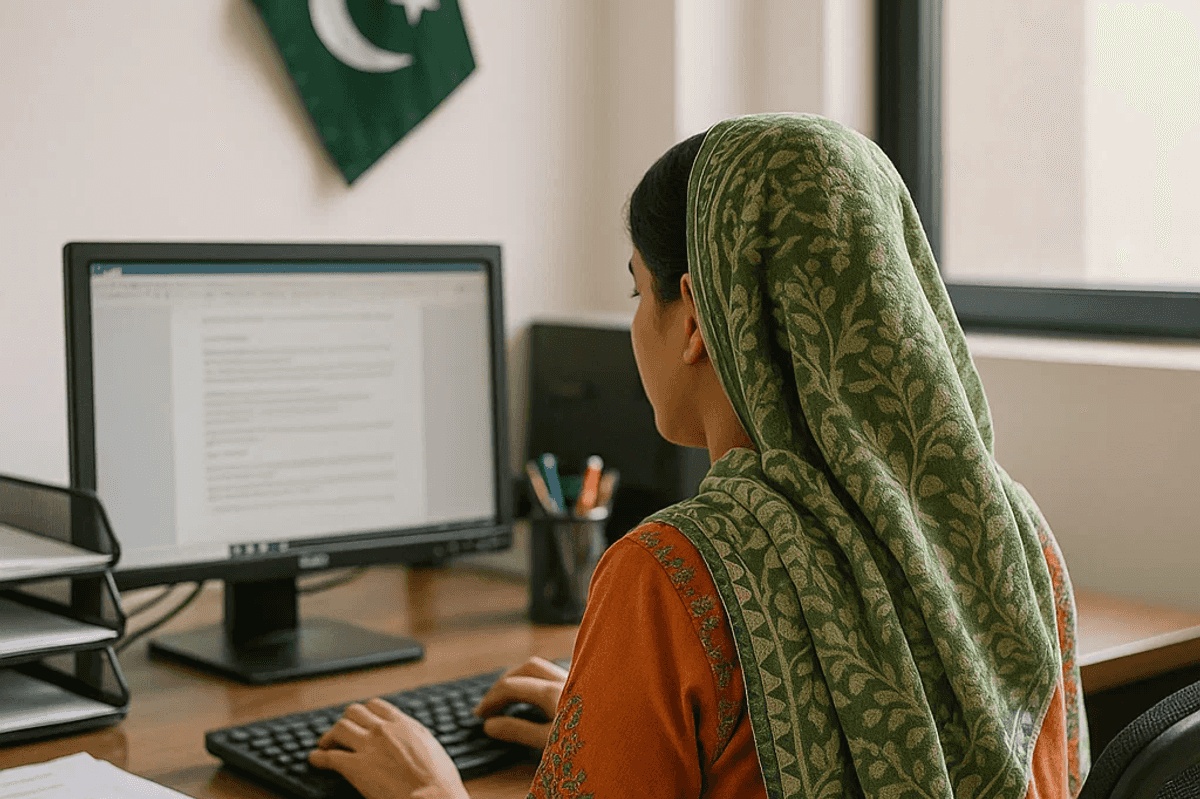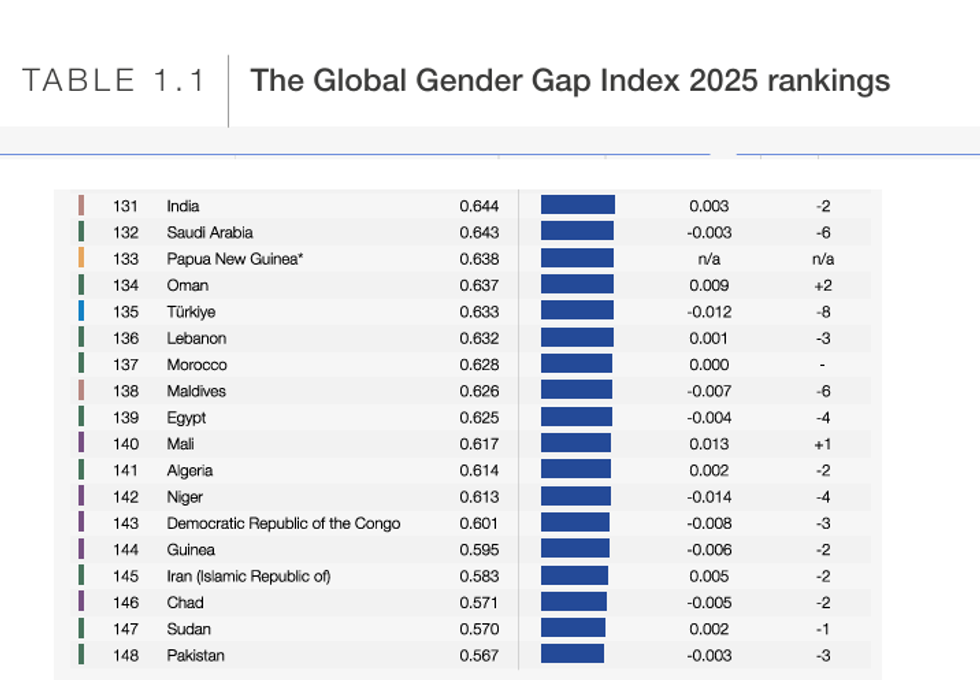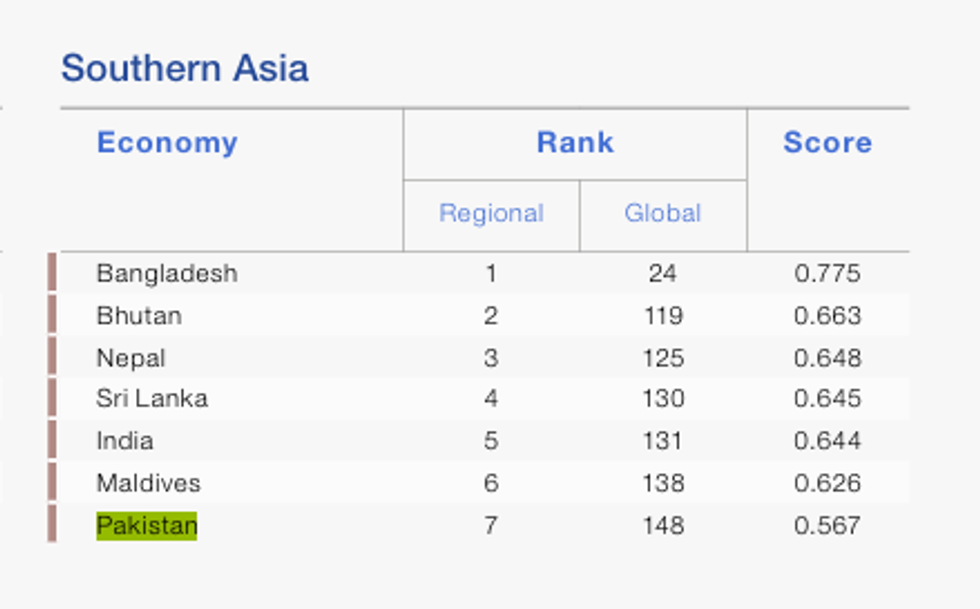Pakistan ranked last in global gender gap index as economic, political parity worsens
WEF report shows Pakistan's gender gap widened in 2025, falling behind all 147 countries on parity in politics and work
News Desk
The News Desk provides timely and factual coverage of national and international events, with an emphasis on accuracy and clarity.

An AI-created visual representation of a woman working in a Pakistani workplace.
Nukta
Pakistan has been ranked at the very bottom -- 148th out of 148 countries -- in the World Economic Forum’s (WEF) Global Gender Gap Report 2025, highlighting entrenched and worsening gender disparities, especially in political and economic participation.
The annual report measures gender parity across key sectors such as the economy, education, health, and political representation.
According to the WEF, Pakistan’s overall gender parity score has dropped from 57% in 2024 to 56.7% in 2025, marking a second consecutive year of decline. Since the index was launched in 2006, the country has closed just 2.3% of its gender gap.
Economic and political gaps widen
The report warns that despite some modest progress in education, major gaps remain in employment, income, and political leadership.

The sharpest setbacks were recorded in economic participation and opportunity, where Pakistan’s parity score declined by 1.3 percentage points. Although the proportion of women in the workforce remains unchanged, the report notes a slight increase in income disparity and perceived wage inequality between men and women.
On a more positive note, educational attainment is the only area where Pakistan saw improvement. The subindex rose by 1.5 percentage points to 85.1%, driven by a rise in female literacy from 46.5% to 48.5%. However, part of this gain was due to a drop in male enrollment in higher education, suggesting that while the gender gap narrowed, overall access to education has worsened.
In the realm of political empowerment, Pakistan’s score fell from 12.2% in 2024 to 11% in 2025. While women’s representation in parliament improved slightly, increasing by 1.2 percentage points, the number of women holding ministerial positions dropped from 5.9% to zero -- dragging down the country’s overall performance in this area.

Global rankings paint a stark contrast
Globally, the 2025 report reveals that no country has yet achieved full gender parity. Iceland remains at the top of the index with a parity score of 92.6%, maintaining its number one ranking for the 16th consecutive year and standing as the only country to have closed over 90% of its gender gap.
European nations continue to dominate the top 10, with Finland (87.9%), Norway (86.3%), and Sweden (81.7%) maintaining strong performances. New Zealand (82.7%) and Namibia (81.1%) also remain in the top tier, while the UK and Moldova climbed in the rankings to join the top 10 this year. Germany (80.3%) and Ireland (80.1%) round out the list.
The full report can be accessed here







Comments
See what people are discussing